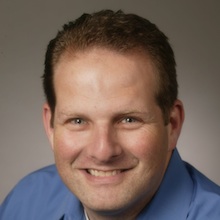Microsoft's Israel accelerator hits second round of start-ups as India and China take note

It's 2013, but in the minds of many people, it will always be 1999 for Microsoft. Try as it might, the company has a hard time shaking its image of a 'closed shop' software company that exists mainly to slap copies of Windows and Office on as many PCs as it can.
But Microsoft is trying very hard to shake that image – and leading the charge, in a suburb of Tel Aviv, is the anything-goes Microsoft Accelerator for Windows Azure. There, 13 of Israel's best start-ups – gathered from a total of 1,000 applicants – are working on everything from retail apps to software that trains medical personnel to digital signage technology.
The Azure Accelerator, which opened last year, now has a second round of companies beginning the programme. The accelerator has proven such a success that Microsoft is duplicating the format in new accelerators the company opened in India and China, says Zack Weisfeld, Microsoft Israel's director of business development.
Finding funding
Already, some of the companies from the first round of the four-month programme that began in March 2012 have made notable progress on funding. "In the eight months since we started the programme, we have accomplished the equivalent of seven years of work that most other accelerators in the world are able to accomplish," said Weisfeld. "So far, $6.5m has been invested in eight of the 11 start-ups from the first group, about $800,000 on average per start-up." One graduate, Stevie.TV, which allows users to mash up their Facebook and Twitter feeds into a kind of television programme, recently closed on a $1.5m funding round, for example.

One of the reasons behind the start-ups winning funding, said Weisfeld, is the exposure they get to key figures in the Israeli IT industry and business world, as part of the accelerator's mentoring program. In the second accelerator round, which began at the end of December and is set to extend through April, some 100 mentors will spend at least an hour a week with start-ups, including execs such as Liam Galin, CEO of Flash Networks; Moshe Lichtman, head of Israel Angel Investments and former head of Microsoft R&D in Israel; Zohar Levkovitz, CEO of Amobee; Ziv Elul, CEO of Interactive; and many more.
Unlike many accelerators, Microsoft does not require companies in the programme to give up any equity, and they don't have to promise to partner with Microsoft after the programme is over. Naturally, most will want to, but it's up to the start-up; there's no arm-twisting involved. The start-ups can also use Microsoft's connections to get a good financing deal from Israel's Plus Ventures investment fund. Start-ups will get a note with very favourable terms, and that note will allow them to close on valuation at a later stage and not at the beginning of the programme.
Enrolled companies will also get some help from the education sector. "The start-ups will be working with teams from the Technion under the guidance of Professor Merrick Furst of the Georgia Tech College of Computing, whose record in developing successful start-ups has been amazing," said Weisfeld. Furst has developed the first, and so far only, scientific methodology for start-up success.
Cloud and big data
While the accelerator took candidates on a case-by-case business, said Weisfeld, there were a few criteria Microsoft was looking for in the chosen start-ups including cloud technology and big data – areas that Microsoft is betting its future on.
Read this
The companies chosen are at all stages of development. Some have beta products that are already in use, while others are working on their initial technology, and are not even publicly revealing what they plan to do.
Among the companies currently in the accelerator are Innobi, which checks your data for information about your business, and then scans the web for likely competitors, displaying and updating profiles and news about them; Telesofia Medical, which grabs information - such as demonstrations and discussions - from the internet about medical treatments and turns them into personalised videos; Scoreoid, a server platform developed by game developers for game developers; and Screemo, which is building a platform that will allow advertisers to create apps that interact with digital signs.
Those are the kind of deep algorithm or big-data apps and platforms that Microsoft chief Steve Ballmer said Microsoft was making an effort to seek out and develop – and Israel is one of the top places for that kind of technology, he said on a visit to the country last November. Israeli experts in machine learning – one of the areas the country excels in, according to Ballmer – have the apps and technologies Microsoft needs.
"Many companies in Israel have extensive experience in big data," said Ballmer at the time, "and we expect a lot of leadership from Israel in this area." No doubt he would do well to keep his eye on the Azure accelerator.